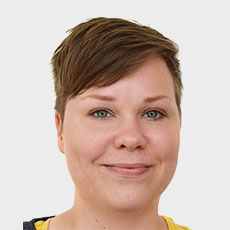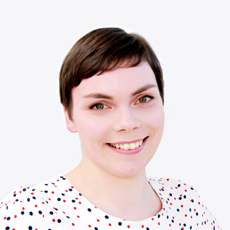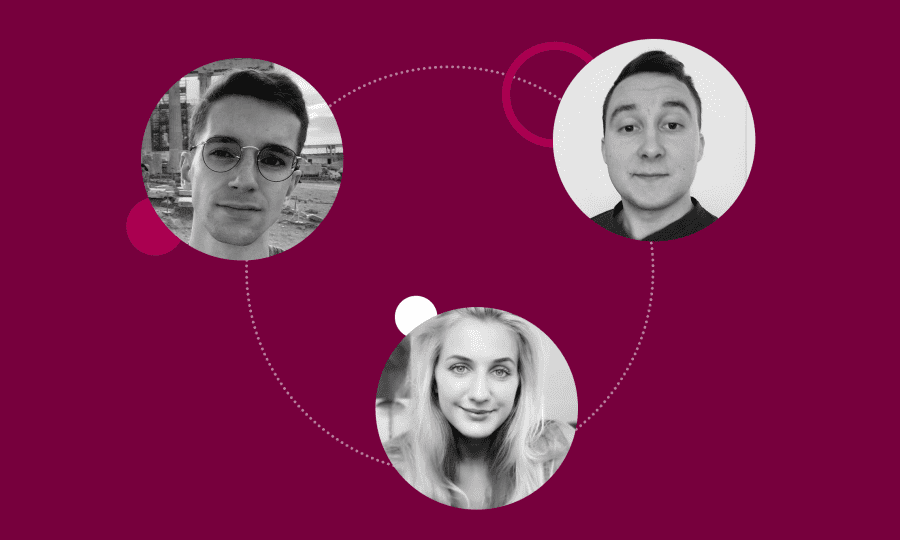
This time, the spotlight is on Anna-Leena Hilli, one of our Language Technology Specialists. A true STP stalwart, Anna-Leena started at the company as a Project Coordinator five years ago.
Which languages do you speak, Anna-Leena?
I can confidently say that I speak Finnish, English, Swedish and Dutch. I also speak basic French and understand some Norwegian, Danish and German. I did actually study German, but anything I understand now is because of similarities to Dutch!
What did you want to be when you were growing up?
The very first thing I can remember wanting to be is a cashier at a supermarket. At 17, I realised it was possible to work as a translator, so after that, I wanted to be a translator.
How did you end up working in the translation industry?
Well, I studied translation once I realised such a thing existed! I applied for an internship at STP towards the end of my studies at university. I got the internship and stayed on as a project coordinator after that. Luckily I was able to finish my dissertation, and therefore my degree, while working full time.
How did you first hear about STP?
I think it was during my fourth year at university that Raisa and Anu came to the University of Helsinki and did a workshop with us. They talked about the translation industry in general and mentioned STP, of course. That’s when I first heard about the company. I know they’ve been back to do courses at the university many times since then.
What does it mean to be Language Technology Specialist?
I really do need to figure out a good way to summarise it! I would say that a big part of the work is regular technology support. Basically, if something – a CAT tool for instance – doesn’t work, we need to make it work again.
We also help the project management team with project preparation. I would say those two things take up most of my time.
Apart from that, we provide training, write instructions, look into new tools – in short, anything to do with translation tools. But the work’s not just about the technology; a lot of it is about working with people and helping them do their job.
What’s the most important quality for a good Language Technology Specialist?
The ability to get stuck into new things without fear. An “I have no idea what this is, but I’ll figure it out” attitude. You need to teach yourself new things, and then you can help others.
Perhaps the obvious answer would be that you need to be a quick learner – I think a willingness to learn and to make an effort is the most important thing.
What is your favourite part of your role?
It’s a little bit difficult to explain! My favourite part is essentially figuring out how to make my own role unnecessary in the long run. I prefer getting to the bottom of an issue rather than putting out fires that could have been prevented, so to speak.
For example, if something has a complicated workflow and people struggle with it, I really like figuring out how to simplify the workflow, how to streamline it so that people find it easier from the word go. Making complicated things simple, in short.
What do you wish you’d known at the start of your career?
I knew there would be a lot to learn, but it took me a while to really understand that there are always going to be new things, that you’ll never know everything, that you’re never “done”.
When I was starting out, I didn’t know how technical the day-to-day work was and how many different CAT tools were out there. Learning a new one is always easier once you’ve mastered others. So if you’re interested in technology, there are a lot of interesting things to learn.
If you could have a professional superpower, what would it be?
It would be knowing exactly what any indecipherable error message in any tool means. Imagine knowing instantly what every “object reference not set to an instance of an object” error was referring to. That would save so much time!
Machine translation – friend or foe?
Friend, absolutely. But it’s one of those friends that if you set too much store by what other people say, you might end up being prejudiced. If you’re willing to give it shot and learn new things, it’s definitely worth it.
Any advice for people starting out in the industry?
I’d say it’s OK to not know exactly what you want to end up doing in the industry. For example, the role that I’m in and the team I’m in didn’t really exist at STP when I first started. It’s something that came later on.
For me, the transition from the project management team to the technology team was a natural progression. I had to learn to use the technology as a project manager and I found that side of things really interesting. When the technology team was created and started growing, it was very clear to me that I wanted to make that leap.
If you could do any other job for a week, what would it be?
I would want to be a neuropsychologist. I find anything related to the brain and how it works really fascinating. I’m not academic enough to pursue a career in any of those fields. It would be cool to try for a week, though!
If you could wake up and be fluent in a new language, what would it be?
It would either be Korean or one of the Slavic languages, most likely Russian. They would be something completely different to the ones I know now, both in terms of culture and language.
Do you have any language-related pet peeves?
Not really! I definitely think that some situations require nit-picking and attention to detail, but in general I’m not a fan of hard and fast rules in language. Languages change, that’s just a fact. I suppose you could call me a fan of descriptive grammar.
What’s your favourite word?
This might be really random, but I like the word “plausible”. It’s fun to say and the meaning somehow appeals to me as well!
Which three words best describe your personality?
I guess I would say “gets thing done”.
Do you have any hidden talents?
I used to play the guitar, and I even have a certificate from a music school. But to be honest, I actually enjoyed the theory lessons much more than the playing. I got pretty good, but I wasn’t very motivated to practise. Being the person I am, I didn’t want to give up. Once I got the certificate after five years, I basically stopped.
It’s fika time. Tea or coffee?
Coffee! Hopefully with a cinnamon bun, if someone will bake some for me!
Who do you most admire, and why?
People who can remain really calm and level-headed even in busy and in stressful situations. Especially if they manage to remain friendly as well!
How do you unwind at the end of a long day?
You’ll usually find me on the sofa reading a book or listening to music. I read a lot of non-fiction books, especially about history. To unwind I prefer a good fiction book, but they’re hard to come by!
Where is your favourite place?
Home, however boring that might seem!
Your dream travel destination?
I don’t really have a bucket list of countries or places to visit. But it would be really cool to travel to the area near the border between Russia and Mongolia. I’d be a bit apprehensive about going without knowing any of the local languages, but it would be fascinating to visit!
Describe STP in three words.
Resourceful, trail-blazing, adaptable.
About Sandberg, Icebreaker, Icebreaker October 2018, Staff spotlight



